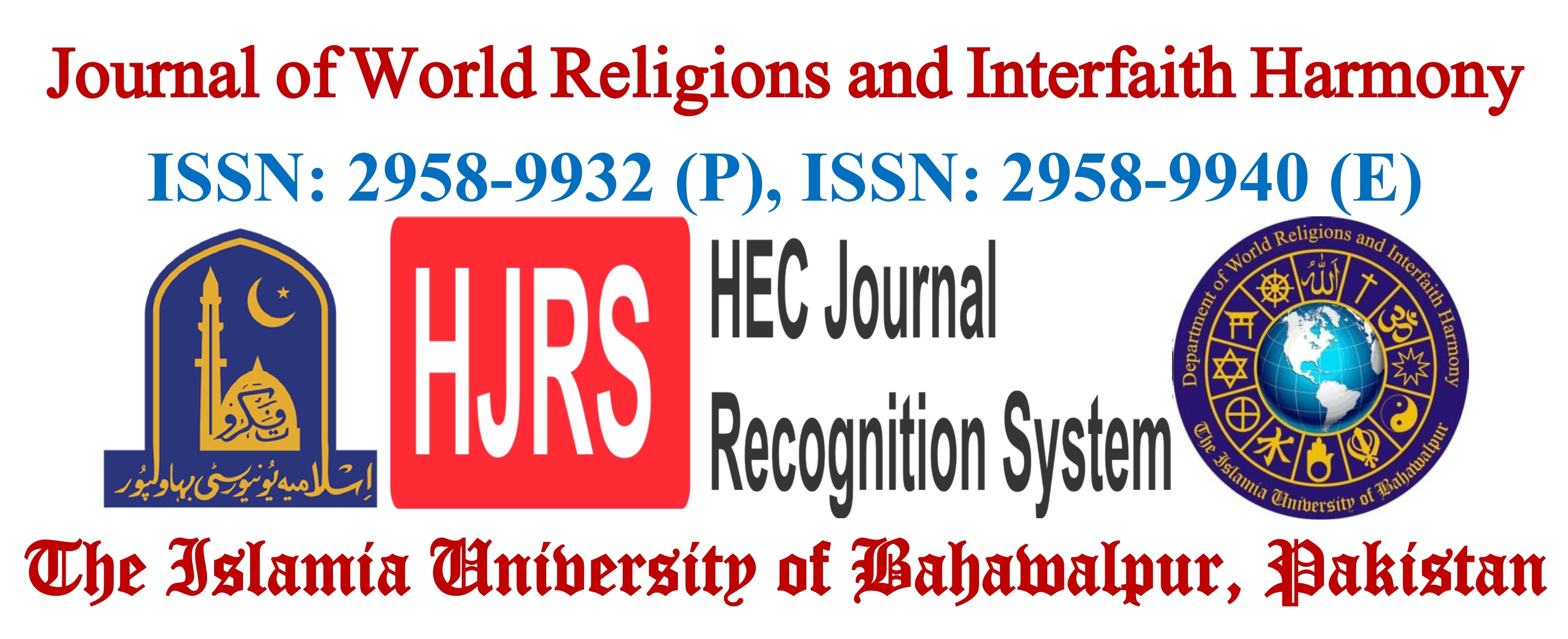Analytical Study of the Pattern of Argumentation of the Divine Books in Tafsīr Ziā ul Qur’ān
DOI:
https://doi.org/10.52461/jwrih.v3i1.2488Abstract
The article investigates the pattern of argumentation employed in the interpretation of the Qur’ān, specially focusing on the perspective presented in Tafsīr Ziā ul Qur’ān by an eminent scholar and former Judge, Pīr Karam Shāh Al Azharī. Tafsīr Ziā ul Qur’ān is recognized for its comprehensive exploration of the Quranic verses and their connections with the narratives found in other divine scriptures. The core of the article involves a systematic analysis of the patterns of argumentation found in Tafsīr Ziā ul Qur’ān. It explores how Pīr Karam establishes links between the Quranic revelations and the stories, lessons, and moral teachings presented in earlier scriptures. Moreover, the research investigates the impact of this pattern of argumentation on the reader's understanding of the Quran, assessing how it contributes to a holistic comprehension of the interconnectedness of divine messages. The article also explores unique insights presented in earlier scriptures. By critically analyzing the exegetical methods employed, the research contributes to a deeper understanding of the intellectual framework that shapes the interpretation of these texts and their interconnectedness as presented in this renowned tafsīr.
Downloads
Published
How to Cite
Issue
Section
License
Copyright (c) 2023 Usman Ahmed, Dr. Muhammad Atif Aslam Rao

This work is licensed under a Creative Commons Attribution-NonCommercial 4.0 International License.






